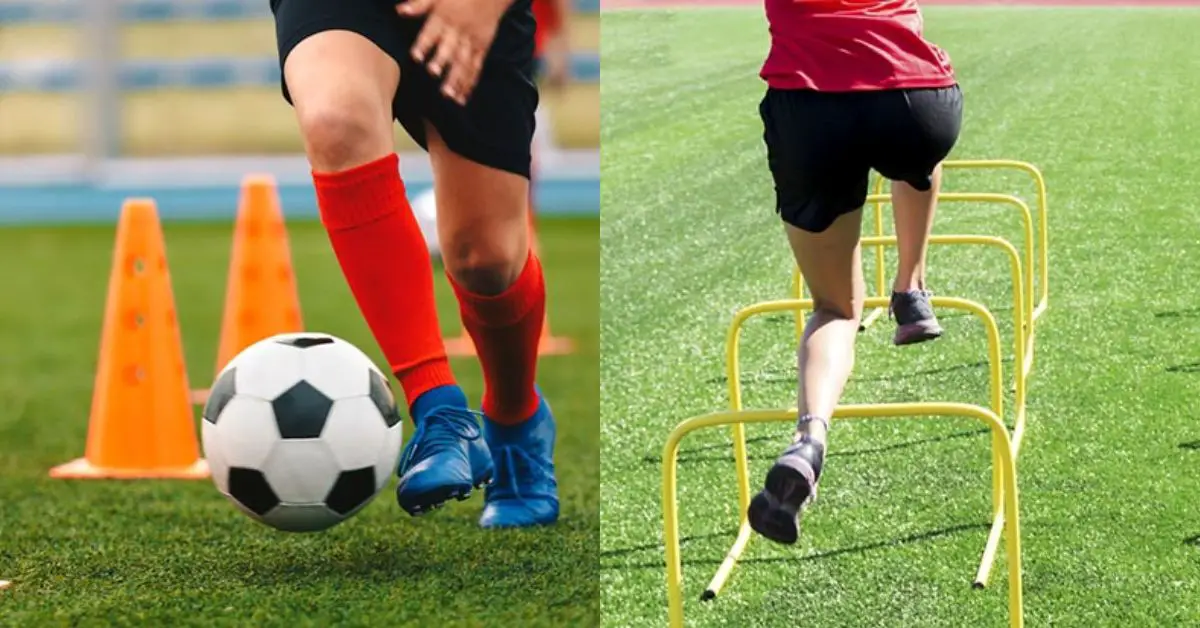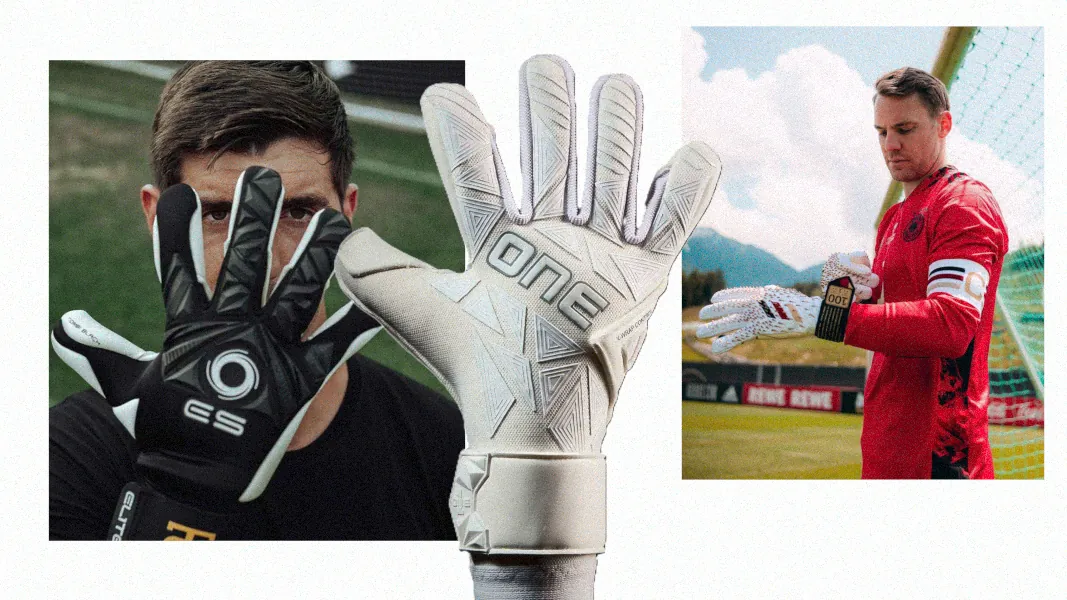In soccer, where every stride, sprint, and kick counts, having robust stamina is your secret weapon. If you’ve ever wondered, “How to improve stamina for soccer?” — you’re at the right place.
This guide will walk you through practical steps to boost your endurance and keep you at the top of your game.

Cardiovascular Conditioning for Soccer
When the game’s tempo accelerates, your cardiovascular system becomes your best friend. It’s the engine that fuels your runs, chases, and maneuvers. To elevate your soccer stamina, focusing on cardiovascular fitness is key. Here’s how to amp up your cardiovascular conditioning:
Aerobic Exercises
Aerobic exercises like running, cycling, and swimming are your allies. They train your heart and lungs to deliver oxygen efficiently to your muscles. Regular aerobic workouts build a solid foundation for enduring those intense matches.
Interval Training – HIIT
High-Intensity Interval Training (HIIT) is the star player in soccer conditioning. It mimics the unpredictable bursts of energy required on the field. In a HIIT workout, you alternate between intense bursts of activity and brief recovery periods.
For instance, sprint for 30 seconds, then jog or walk for 1-2 minutes. Repeat this pattern to elevate your heart rate and enhance your stamina.
A combination of aerobic exercises and HIIT sessions gives you a well-rounded cardiovascular regimen. Over time, your heart becomes more efficient, allowing you to go the extra mile (or sprint) without running out of steam.
Strength Training and Muscular Endurance
Soccer is a symphony of motion, and your body is the instrument. To play your part without missing a beat, you need strength and endurance.
Building Lower Body Power
Your legs are your foundation in soccer. Strengthen them with exercises like squats, lunges, and step-ups. These movements not only enhance muscular endurance but also provide the explosive power needed for quick sprints, jumps, and agile maneuvers. As your legs become more resilient, you’ll find yourself maintaining intensity throughout the match.
Upper Body Strength
While soccer heavily relies on lower body strength, neglecting your upper body is like missing a verse in the song. Upper body strength creates balance and stability, enabling you to shield the ball, hold off opponents, and maintain control.
Incorporate push-ups, pull-ups, and resistance band exercises to build upper-body endurance and full-body coordination.
Endurance Through Resistance
Muscular endurance isn’t just about lifting heavy weights; it’s about enduring repetitive motions. Perform exercises with lighter weights and higher repetitions to improve endurance.
This prepares your muscles to keep performing at their best even when fatigue sets in during the latter stages of a game.
Crafting Your Strength Routine
Strike a balance between strength and endurance training. Incorporate lower body, upper body, and core exercises into your regimen. Begin with moderate weights and gradually increase the challenge as your muscles adapt. Consistency is key; aim for 2-3 strength training sessions per week.
Nutrition and Hydration
Just as a car needs fuel to run smoothly, your body requires the right nutrition and hydration to perform at its peak on the soccer field. What you eat and drink directly impacts your energy levels, endurance, and recovery.
Energizing with a Balanced Diet
Carbohydrates are your body’s preferred energy source. Prioritize complex carbohydrates like whole grains, fruits, and vegetables to provide sustained energy throughout the game.
Protein is essential for muscle repair and growth; include lean sources such as poultry, fish, beans, and dairy. Healthy fats from sources like avocados, nuts, and olive oil provide lasting energy and support overall health.
The Hydration Game Plan
Staying hydrated is paramount. Dehydration can lead to fatigue, decreased performance, and even injury. Before the game, start well-hydrated and continue to drink water throughout the match.
During intense activities, opt for sports drinks containing electrolytes to replenish lost minerals. After the game, rehydrate and refuel your body to kickstart the recovery process.
Rest, Recovery, and Mental Conditioning
Power of Restful Intervals
Rest is not a sign of weakness; it’s a cornerstone of improvement. Adequate sleep is your body’s repair workshop. Aim for 7-9 hours of quality sleep each night. Sleep boosts muscle recovery, helps regulate hormones, and sharpens cognitive function. Quality sleep equips you to tackle each game with a fresh burst of energy.
The Art of Active Recovery
Active recovery is like hitting the reset button for your muscles. Engage in light activities like stretching, yoga, or gentle swimming on rest days. These activities promote blood flow, reduce muscle soreness, and prevent stiffness. They contribute to long-term endurance by keeping your muscles in prime condition.
Mental Toughness Training
Endurance isn’t solely a physical feat; it’s a mental one as well. Developing mental toughness helps you push through fatigue and maintain focus during challenging moments. Practice visualization techniques, mindfulness, and positive self-talk. The ability to keep a clear mind even when physically fatigued can significantly impact your performance.











